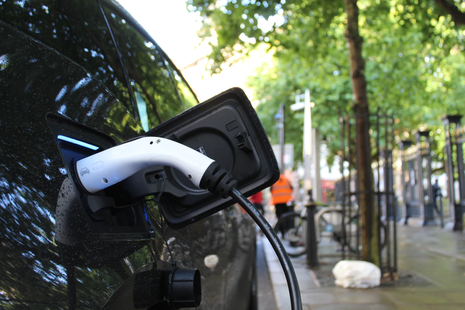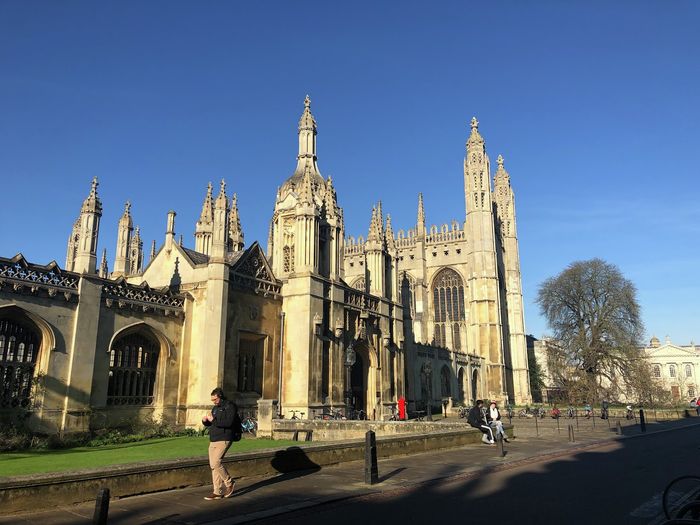Cambridge University tops Russell Group members in electric vehicle ownership
A survey carried out by Group 1 Automotive found that 69 percent of Cambridge University’s fleet are electric

The University of Cambridge has placed first out of the Russell Group universities and third overall in car dealership conglomerate Group 1 Automotive ranking of universities by their ownership of electrical vehicles.
The company used Freedom of Information requests to find out the percentages of electric and diesel cars owned by different universities, requesting an updated list of cars and vans owned by or leased to the University, specifying a breakdown by hybrid, diesel, and petrol. They also asked whether each university had a future quota or target in relation to electric vehicles in the fleet.
The report found that 69 percent of Cambridge’s vehicle fleet is electric, with 37 of the University’s 54 vehicles powered by electricity.
London Business School and Birkbeck College reached the 1st and 2nd positions respectively, with 100% of their vehicles being electric.
Six Russell Group universities, including Warwick and Sheffield, were classed as “Tier 1”, with over 33 percent of their vehicle fleets being electric.
According to the report, 18 universities out of 132 responded with a statement about making their fleets more sustainable by implementing a zero emissions plan. Some universities also spoke of their future targets to be 100% electric.
The report also highlighted the Cambridge Zero initiative. The initiative is led by climate scientist Dr Emily Shuckburgh OBE, a Fellow of Darwin College, and commits the University to cut greenhouse gas emissions to zero by 2038.
As stated on the University website, Cambridge Zero aims to “harness the full range of the University’s research and policy expertise, developing solutions that work for our lives, our society and our economy.”
Cambridge Zero's portfolio of research brings together work from across the University to focus on six main areas: zero-carbon energy transformation; health and society; resources and production; resilient futures; transport, cities and infrastructure; and carbon breakdown and climate repair.
Cambridge Zero also plans to integrate climate change education throughout all educational levels.
 News / Report suggests Cambridge the hardest place to get a first in the country23 January 2026
News / Report suggests Cambridge the hardest place to get a first in the country23 January 2026 News / Reform candidate retracts claim of being Cambridge alum 26 January 2026
News / Reform candidate retracts claim of being Cambridge alum 26 January 2026 News / Cambridge ranks in the top ten for every subject area in 202623 January 2026
News / Cambridge ranks in the top ten for every subject area in 202623 January 2026 Comment / Cambridge has already become complacent on class23 January 2026
Comment / Cambridge has already become complacent on class23 January 2026 News / Palestine activists project slogans onto John’s24 January 2026
News / Palestine activists project slogans onto John’s24 January 2026









